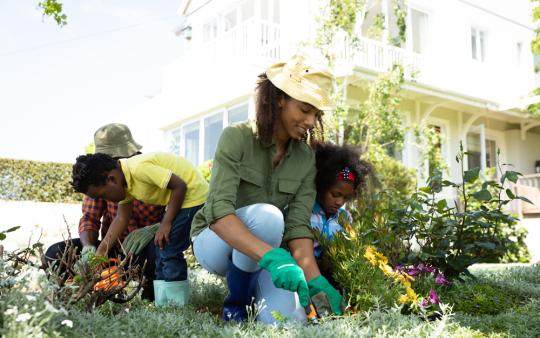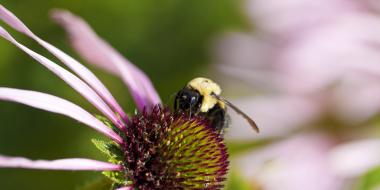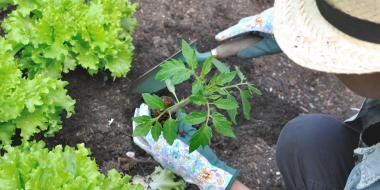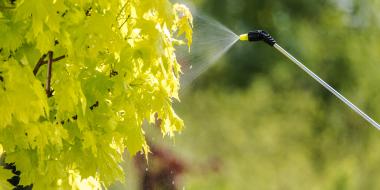Gardening is a great way to get the entire family involved in cultivating healthy eating habits. Not only does tending a garden teach responsibility, patience, and environmental consciousness, it also provides the opportunity to practice problem-solving skills when things don’t quite go as intended, and organizational skills in creating and executing a garden plan. Plus, literally seeing the “fruits of your labour” is tangible gratification for all that work!
Good Thymes in the Garden
Whether you have a backyard garden plot, a corner of the balcony set aside, or just a sunny windowsill, you can easily create a memorable gardening experience for your child. It simply requires a few basics: seeds, soil, sun, and water. Get as creative as you want! Turn it into a craft session by decorating pots or artistically designing plant markers to identify your seedlings. Paint some rocks in colourful colours to jazz up the plot, or make a “fairy” garden by having your child incorporate some of their toys and figurines into the garden area (a dinosaur or scarecrow would be perfect!). Encourage naming the garden or plants and having children talk to their plants with positivity and affirmations (i.e. garden greetings).
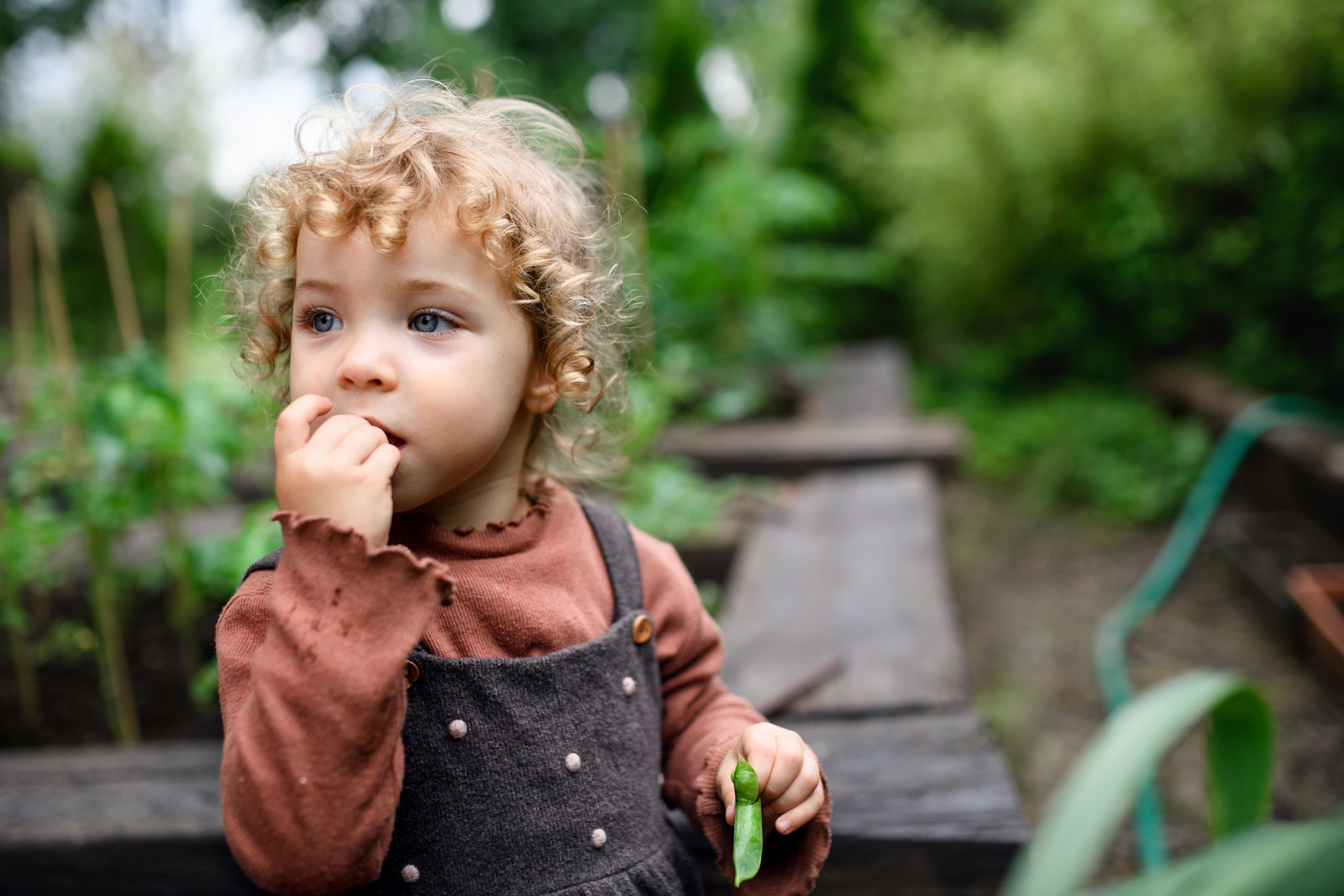
Instant Garden
To achieve a big impact in no time, plant chia seeds! Sprinkle a handful on the surface of the soil, cover lightly, and keep moist. In 3-5 days, your pot or patch will be covered in a carpet of tiny seedlings!
Lettuce Embrace the Senses!
Activate all five senses in the garden! Engaging your senses doesn’t just make tasks more enjoyable, it can help you learn more effectively and retain more information. Gardening also supports cognitive growth, language development, motor skills, and problem solving skills.
Touch
Our sense of touch is the first way we learn and discover the world around us, which is why children instinctively want to touch things in order to better understand them. Encourage the discovery and wonder of growing things by activating their touch sense! Let them plant the seed, pat the soil, and hand-harvest the result. Allowing them to use their hands to play with the soil, touch the seeds, and grasp the resulting produce lets them experience the grounding quality of the earth.
Sight
is evoked by seeing plants grow and ripen. Have your child observe the changes in the fruit as they ripen: How have their shape, size, or colour changed? Encourage them to take notice of their surroundings: Where does the sun rise? Set? How does your child think this might affect the plants’ growth?
Sound
Taking the time to listen for the sounds and rhythms of nature helps us feel more connected to the earth. Ask your child: Which sounds can they identify in the garden? Is it silent, or are there chirping birds, buzzing insects, or wind whooshing through the trees? To take the experiment one step further, try the classic school experiment of exposing the plants to classical music. Ask your child: Do they think the music impacted the plants’ development? Try greeting the plants every time you’re tending the garden. Did the positive interactions help the plants grow?
Smell
The sense of smell is linked with long-term memory, especially in the mind of a child, where smell recognition aids in memory recall. What does the garden smell like? How do the smells of different plants compare or contrast with each other? Do the smells signify how they will taste? The sense of smell and taste are interlinked and connected. Is the plant fresh and crisp, or sweet and pungent?
Taste
Exposing your little one to a multitude of different fruits and veggies encourages a varied culinary palate, and children will often be more willing to try something new if it’s in a unique location, like plucking a tomato straight from the garden. Have your child pluck a fruit or veggie of their choice from the garden and mindfully chew it, experiencing its unique tastes and smells.
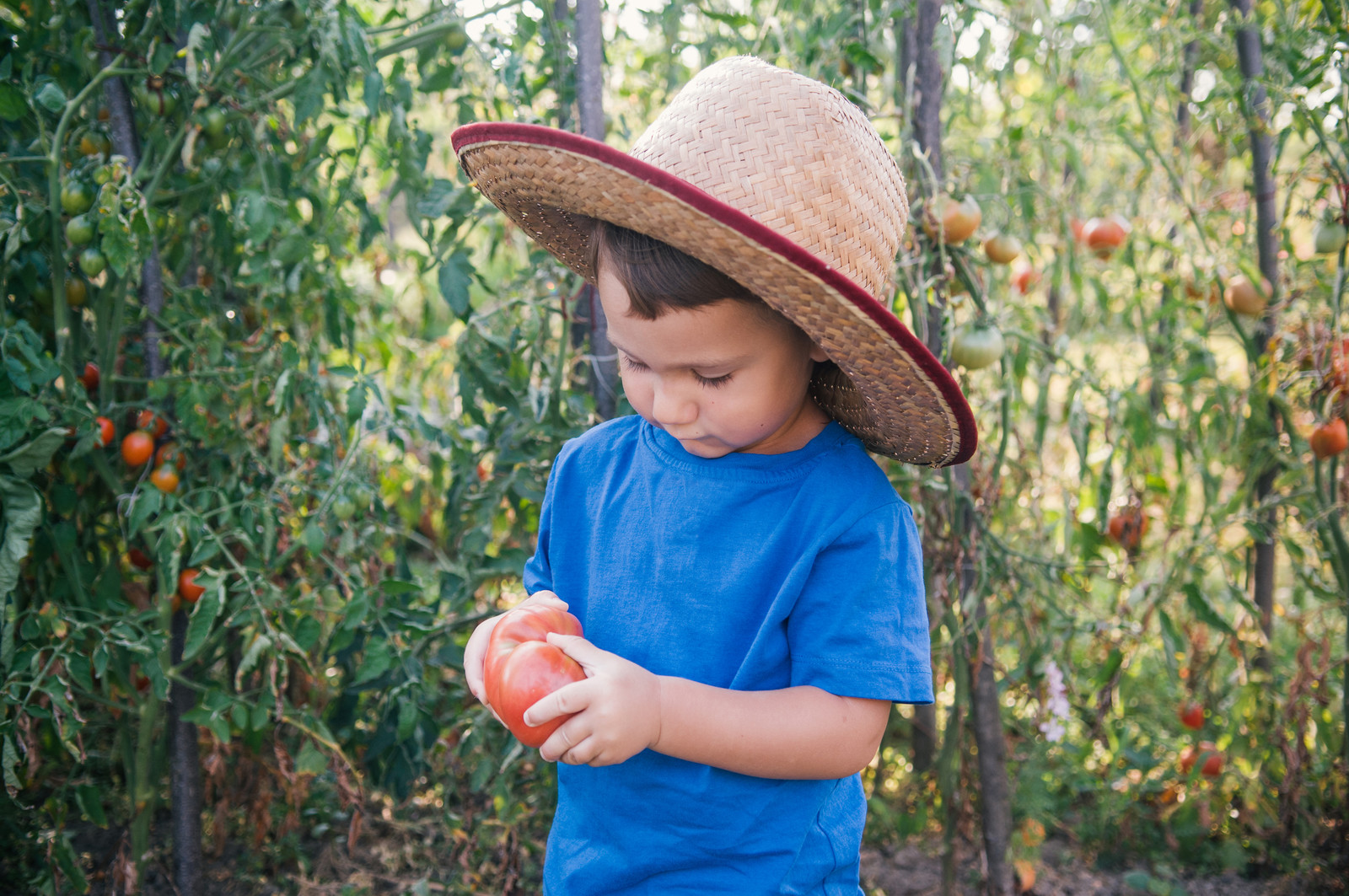
Find Your Inner Peas
The concept of planting a seed is an important act of mindfulness to practice. Each seed is placed with intent, with acknowledgement, and with patience. In life, when you “plant a seed,” whether it be a thought, concept, affirmation, or intent, it takes time to come to fruition. And just like a real seed in the garden, that theoretical seed of intent needs daily tending to grow. Watering or feeding your seed only once won’t result in a healthy, fruitful plant. Similarly, one session of meditation won’t give your mind the overall calm you’re hoping for. Instead, it’s the commitment to setting aside time daily to meditate where you will eventually reap the relaxing rewards of your efforts.
Last, but certainly not leeks (!!), gardening teaches crucial lessons in self-care and healthy esteem. When we set aside time to tend to plants, we are reminding ourselves of the importance of taking care of ourselves too. Like a plant, we could adapt to our environment if we were left uncared for and alone, but we are much healthier when we care for and support one another. Gardening is so much more than just getting your hands dirty. Dig in and you and your kiddos will reap the amazing rewards!
You may also enjoy: Getting Kids into Gardening, Gardening for Absolute Beginners, and 11 Essential Life Skills for Sustainable Kids.



